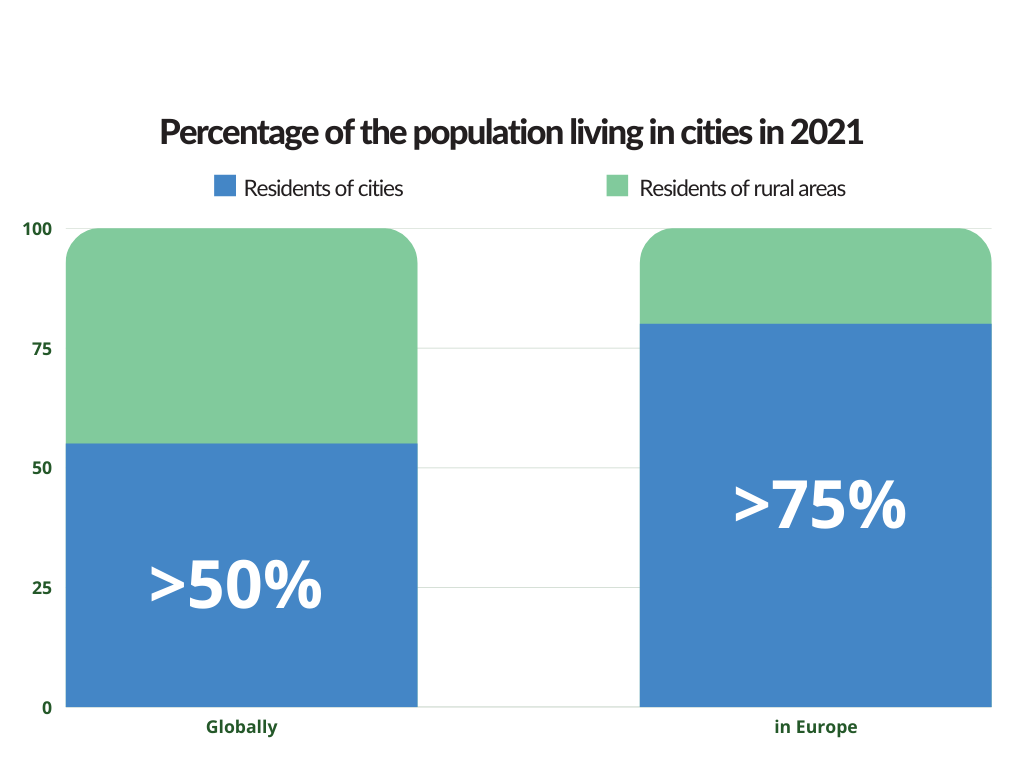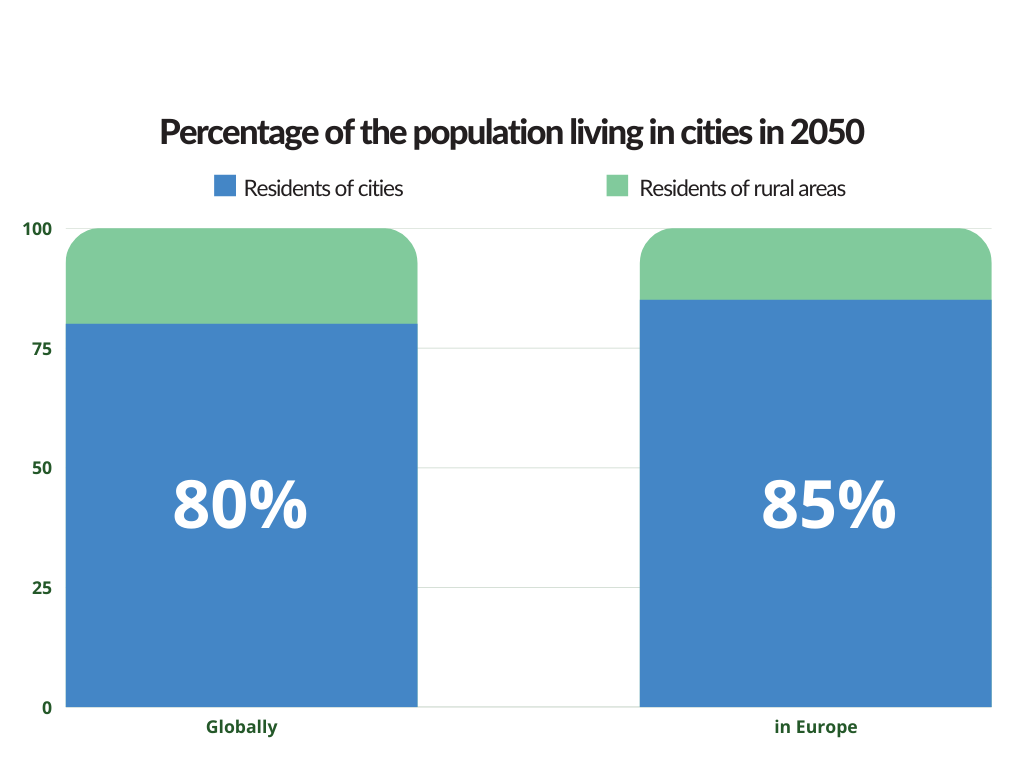Cities cover only 3% of the land area, but generate 72% of global greenhouse gas emissions.
However, what life in cities and metropolitan areas as centers of economic, scientific and innovative activity will be like will be crucial given the upcoming climate disaster.
For many years, Polish cities have been preparing to face climate change – first through the Low-Emission Economy Plans, then through the Municipal Plans for Adaptation to Climate Change. It’s time to take the next step. In 2021, ten Polish cities signed up for the EU’s 100 climate neutral cities by 2030 program. It is in them that we see the leaders of change who will start the necessary systemic transformation towards climate neutrality. Of course, each city faces different challenges and difficulties on they way to achieve this goal. That is why the Climate Strategies Poland Foundation supports cities in their efforts to reduce greenhouse gas emissions.


The EU is pursuing climate neutrality by 2050. In September 2020, the European Commission proposed raising the emission reduction target for greenhouse gases to at least 55% by 2030, compared to 1990. This means emission reduction in sectors not yet covered by the ETS – transport, construction (i.e. heating) and agriculture.

Obviously, one cannot abate something that has not been counted. We calculate the carbon footprint (i.e. the total sum of greenhouse gas emissions) of companies, services, products and planned investments, in accordance with the international GHG Protocol greenhouse gas calculation standard.
The GHG Protocol aims to provide cities with standards and tools to measure the emissions they generate,. It also helps building effective strategies, set measurable targets and comprehensively track progress in abating emissions.
The Global Protocol for Community-Scale Greenhouse Gas Inventories requires cities to report their emissions using two separate, yet complementary approaches:
This includes selected Scope 1, 2 and 3 emission sources. It provides two levels of non-financial reporting, which show different levels of completeness:
The BASIC level covers the emission sources that exist in almost all cities (on-site energy, cross-border transport and waste generated at the city limits), and methodologies and calculation data are more readily available.
The BASIC+ level covers more comprehensive emission sources (BASIC sources as well as IPPU, AFOLU, cross-border transport and energy loss, transmission and distribution) and reflects the more demanding data collection and calculation procedures.
We actively participate in planning roadmaps towards net zero emission in close cooperation with city official project teams. We share knowledge and good practices of other stakeholders, supporting exchange of experiences with cities that have already implemented similar activities. Our experts accompany cities along the entire process, but also consult in specific areas, e.g. energy efficiency or financing “green” projects.
Climate change affects virtually every area of life, therefore, careful design of emission reduction-oriented activities and projects is extremely important. We are happy to share our knowledge and observations. We also welcome residents, representatives of the academia and NGOs to join the discussion. All this so that cities gain a rounded perspective to consciously make decisions while implementing their climate policy. For this purpose, the Gdansk Climate Change Council was established, in which we have the pleasure to participate.
As part of cooperation with the Union of Polish Metropolises, we regularly organize meetings to discuss climate-related topics, to better understand the situation of Polish cities in the face of upcoming challenges. We believe that a competent team is the foundation of a conscious climate policy. We have a number of tools to present even the most difficult issues in a clear and understandable way. And our speakers are not only domain experts, but also seasoned communicators.
We believe that every opportunity to talk about the climate is good and that consistently building awareness and reaching new audiences is justified to mitigate the effects of climate change. We organize regular webinars, host lectures, give interviews and comment for trade magazines, as well as publish own materials
Our experience shows that while there is plenty of funds for financing “green” projects, there are few projects worth financing. We are doing all we can to reverse this trend. By supporting cities in planning investments, we share our knowledge on potential funds and investors. We also leverage our extensive experience in successful applying for funding.

Cieszymy się, że chcąc poszerzać swoją wiedzę na temat zmiany klimatu i ograniczania jej skutków, odwiedzasz naszą stronę internetową.
Przy tej okazji chcielibyśmy poinformować, że w dniu 23 września 2024 roku nazwa naszej Fundacji uległa zmianie na Climate & Strategy.
Modyfikacja ta nie wiąże się z żadnymi zmianami wewnątrz organizacji i nie pociąga za sobą zmiany profilu oraz oferty Fundacji.